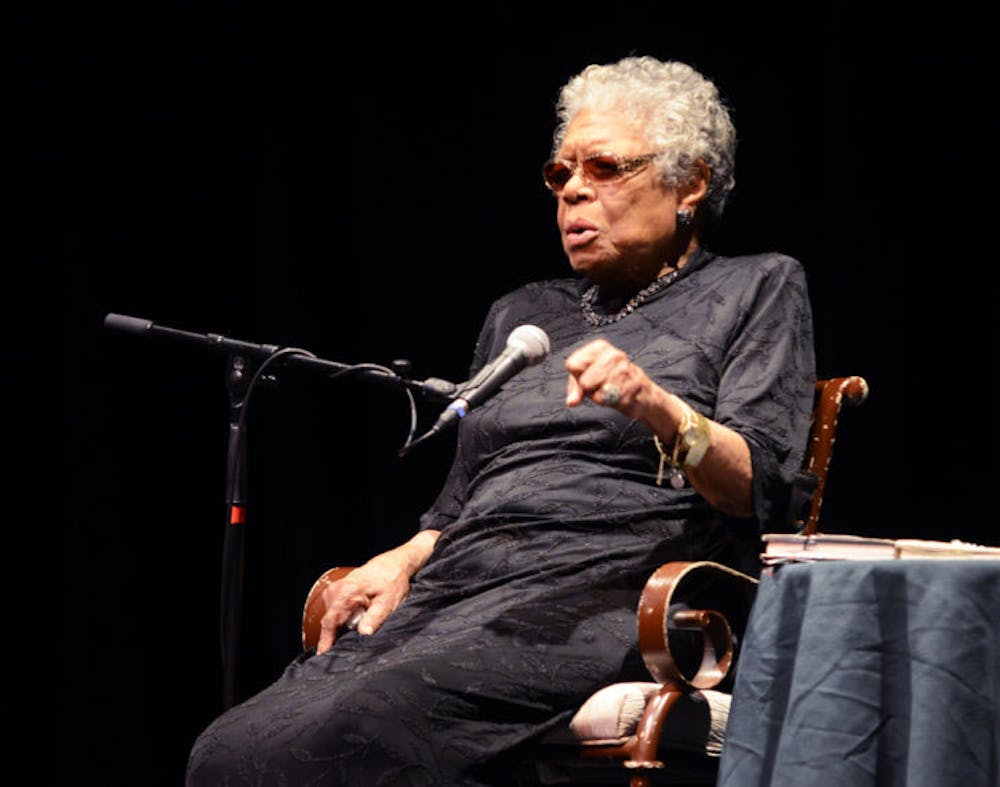After 86 years of poetry and civil resistance, Maya Angelou died Wednesday morning in her home, leaving UF students appreciative of their opportunity to hear her speak last year.
Angelou was best known for her 1969 autobiography, "I Know Why The Caged Bird Sings," which recounts her upbringing as an African-American woman in the American South during the Jim Crow era.
UF students and professors reacted to the news of her death by remembering her work, as well as her visit to campus, when students packed the Phillips Center for the Performing Arts in 2013 to hear her speak.
“Her presence was just so incredible,” said 22-year-old UF psychology alumna Somi Aggarwal, who attended the performance hosted by UF Accent Speaker’s Bureau.
Angelou spoke frankly about her past and her passion for civil and human rights. She ended by reading honest and uncensoredpoetry, Aggarwal said.
“The way that she carries herself and spreads her story is really inspirational,” she said. “When she talked, like, you just felt it. Everyone was so drawn in.”
Aggarwal said Angelou was one of the only Accent speakers she has seen receive roaring applause and a standing ovation.
“She was so powerful for such a tiny person,” she said.
Justin Dunnavant, a 25-year-old UF anthropology graduate student, said he has read multiple letters written by Angelou.
She often wrote by herself in a hotel room, he said, because she believed that unique ideas could only come to those who spent time alone. Sometimes, she would be in the room so long that hotel employees slid notes under the door asking to clean the room.
“She could do things gracefully and artistically with paper and pen,” Dunnavant said.
UF history professor Paul Ortiz said it is hard to sum up the life of a person who did so much good.
Angelou worked with many prominent figures of the civil rights era, including Malcolm X, Richard Wright and James Baldwin, he said. She was like their interpreter.
“She was one of the last people who could tell you what they were thinking,” he said. “She was able to get at the personal psyche of African-American society.”
Ortiz said he often uses her memoirs and interviews in his classroom. Her powerful work pushes people beyond their comfort zones, he said.
He said Angelou never tried to soften her message: The struggle for civil rights in the U.S. is ongoing and full of obstacles, but it is a struggle worth fighting for.
“She was able to personalize the struggles of African Americans,” he said. “And she was able to say what it meant to you and what it meant to me.”
[A version of this story ran on page 1 - 4 on 5/29/2014 under the headline "Students remember Maya Angelou"]
Correction: An earlier version of this story misstated "I Know Why the Caged Bird Sings" was Angelou's poem, not her autobiography.
Author and poet Maya Angelou speaks to a crowd at the Phillips Center for the Performing Arts on Wednesday night.






